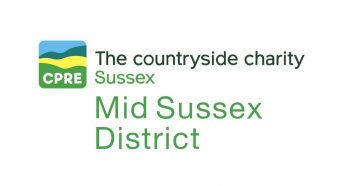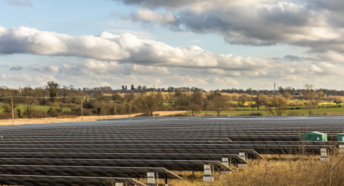With a swathe of the North Kent Marshes to be lost in the name of green energy, the government chooses not intervene in plans for a new coal mine

In the week that developers announced they planned to start work later this year on the UK’s largest solar farm, at Cleve Hill, near Faversham, it might seem baffling the government has chosen not to call in proposals for a deep coal mine in north-west England.
The decision by Robert Jenrick, Secretary of State for Housing, Communities and Local Government, not to intervene after Cumbria County Council approved West Cumbria Mining’s application for the mine, near Whitehaven, has been roundly slated by conservation groups.
The project has drawn some 2,300 objections since 2017, including from such groups as Friends of the Earth, WWF, Greenpeace and Extinction Rebellion. On Wednesday last week (January 13), however, CCC said it had been told there would be no governmental call-in.
With coal-powered electricity generation due to end by 2024, the Cumbrian coal will be used in British and European steelmaking – a process WCM claims will cut emissions caused by the wider transport of steel.
The argument has cut no ice with environmental groups, however, which say the mine could hinder alignment of the country’s steel sector with the 2050 net-zero target.
Doug Parr, of Greenpeace UK, told The Independent: “We are in a climate emergency and in no way, shape, or form should this or any new coal mine be granted planning permission.
“Of course, job creation is absolutely vital to communities, but we must look forward to the jobs of the 21st century, not back to those in declining industries. Robert Jenrick needs to immediately reverse his decision not to call this in and then can the project completely.”
Friends of the Earth’s Tony Bosworth agreed: “Mr Jenrick’s refusal to call in this unnecessary and climate-wrecking coal mine shows jaw-dropping inconsistency… last month the government said it would no longer support fossil fuel projects overseas.
“Allowing coal to be extracted from this proposed mine for over a quarter of a century completely undermines the government’s credibility on the climate crisis – especially ahead of the crucial UN summit later this year, which the UK is hosting.”
The government approach is also galling for those who battled Cleve Hill Solar Park, which, if it goes ahead, will industrialise almost 1,000 acres of the North Kent Marshes – an area of international importance to wildlife.
That scheme was promoted by developers, supporters and Whitehall alike as making a substantial contribution of renewable energy as the UK looked to achieve its net-zero target, so the non-intervention in the coal-mine process seems bafflingly inconsistent.
Some might think Mr Jenrick’s reported statement relating to the mine in which he said the government was “committed to giving more power to councils to make their own decisions on planning issues” was little more than him washing his hands of the wider matters.
The Cumbrian development would be the first deep coal mine to be developed in this country for 30 years should it go ahead. At Cleve Hill, meanwhile, developers are apparently concentrating on the detailed design of their solar farm.
Wednesday, January 13, 2021
- A number of important documents have yet to emerge. For example, a rigorous transport plan and a finalised air-quality assessment. The latter is critical given that allocations at Teynham will feed extra traffic into AQMAs.
- There seems to be no coherent plan for infrastructure delivery – a key component of the plan given the allocations being proposed near the already crowded Junction 7.
- There seems to have been little or no cooperation with neighbouring boroughs or even parish councils within Swale itself.
The removal of a second consultation might have been understandable if this final version of the plan were similar to that being talked about at the beginning of the consultation process. It is, however, radically different in the following ways:
- There has been a major shift in the balance of housing allocations, away from the west of the borough over to the east, especially around the historic town of Faversham. This is a move that raises many concerns.
- A new large allocation, with accompanying A2 bypass, has appeared around Teynham and Lynsted, to which we are objecting.
- Housing allocations in the AONB around Neames Forstal that were judged “unsuitable” by the council’s own officers have now appeared as part of the housing numbers.
- Most of the housing allocations being proposed are on greenfield sites, many of them on Grade 1 agricultural land – a point to which we are strongly objecting.
Concerns about the rush to submit the plan
The haste with which the plan is being prepared is especially worrying given the concentration of housing in Faversham. If the town is to take a large amount of new housing, it is imperative that the policies concerning the area are carefully worked out to preserve, as far as possible, the unique nature of the town. The rush to submit the plan is likely to prove detrimental.
As Swale does not have a five-year land housing supply, it is open to speculative development proposals, many of which would run counter to the ideas contained in the current plan. Some are already appearing. This is a common situation, and one that, doubtless, is a reason behind Swale’s haste.
Our overriding fear, however, is that this emphasis on haste is ultimately going to prove counterproductive. This is because it is our view that the plan, in its current form, is unlikely to pass independent examination. We are urging Swale to listen to and act upon the comments being made about the plan and to return the plan to the council with appropriate modifications before submitting it to the Secretary of State.
Essentially, this means treating the current consultation not as the final one but as the ‘lost’ second consultation.
The consultation ends on Friday 30 April and we strongly urge residents to make their opinions known if they have not already done so.
Further information








